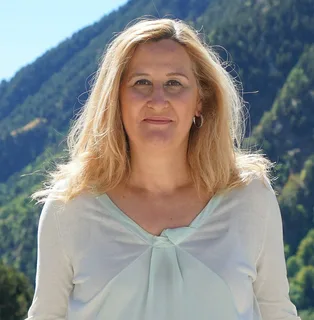Individuals with eating disorders and their families often struggle during the holiday season. Fear of food, fat, self-condemnation, relational stress, anxiety and depression often are themes in households. Families brace themselves to deal with the awful and debilitating behaviors of their loved one as they try to maintain their compassion, empathy and non-reactive voice in their communications.
On this Thanksgiving and through this Holiday season I wish to give thanks to having the privilege of being invited in to the intimate lives of my patients and their families and what meaning these relationships have meant in my life.
When people seek therapy they typically are often coming to uncover the truth about themselves – to understand their motivations, their feelings, their relationships, and their behaviors – what makes them tick. People with eating disorders also come to understand what meaning food has had in their life and how to move toward healthier relationships with people that are based on honesty, trust, respect and empathy. They come also to learn to let go and learn how to enjoy life without the nagging voice of food and body image obsession, self-doubt and self-reproach looming overhead.
I am grateful that I have the unique opportunity to participate in this process.
So, what do I get out of the deal?
Personally, my work with my patients reminds me of all that is whole and real in life and of the good in people. Patients come for the truth. The therapeutic processes are based on rigorous honesty from the patient and the trust of the therapist to be non-judgmental, kind and clinically smart. The trust and containment of the therapeutic process and safety of the proverbial “room” therapy provides creates a separate, but real world for connection and relationship to develop.
The relationship between patient and therapist have a few components– patient and therapist are committed to “use” their relationship to explore the significant and historic relationships in the patient’s life (transferential relationship.) Patient and therapist are also “aligned” together to utilize the therapist’s expertise in clinical theory and judgment. So, the patient and therapist are in the “lab” together observing and responding to the information, perspective and feelings the patient reveals. In addition, there is the relationship that develops between two people who spend time together on a regular basis. It is this relationship between patient and therapist of which I write and reflect on today. For some patients, it is the most honest relationship they will ever have.
article continues after advertisement
The kindness and caring is real. The trust is real. The fact that patients can get angry with me for a mistake (i.e. responding less than sensitively, forgetting something) perceived mistake on my part or that their anger is really a manifestation of an earlier hurt from another relationship, all happens in real time in the context of the relationship.
Over time and with these relational ingredients, growth occurs. Patients are able to build solid and lasting relationships outside of therapy. They let go of old patterns and ways of behaving and relating that have negatively affected them. They have more fun. They take more risks. They laugh more. They learn that loss is a necessary part of being close to someone. They find gratitude for life and the people in them, for however long the relationships last.
I am lucky and grateful this holiday season to have a professional life that is ideal in many ways. Yes, there is a lot of sadness, hurt, pain, loss, trauma, anger, self-destructive behavior, dysfunctional relationships or relationships that are wonderfully functional that require appreciation that therapists deal with on a regular basis. I do not minimize this. However, in spite of, or perhaps because of the readiness of both the patient and therapist to deal with pain comes the capacity for truth and connectedness. It is this connectedness for which I am grateful. This is a wonderful way to go through life.
Simply put, I wish for everyone to know the simplicity and ease that comes with a relationship where it is safe to explore feelings and where both parties are able to accept and acknowledge their responsibility and commitment to preserving the relationship, on the one hand, and allowing for growth on the other. BTW: You don’t have to be a therapist and patient to have this.
article continues after advertisement










